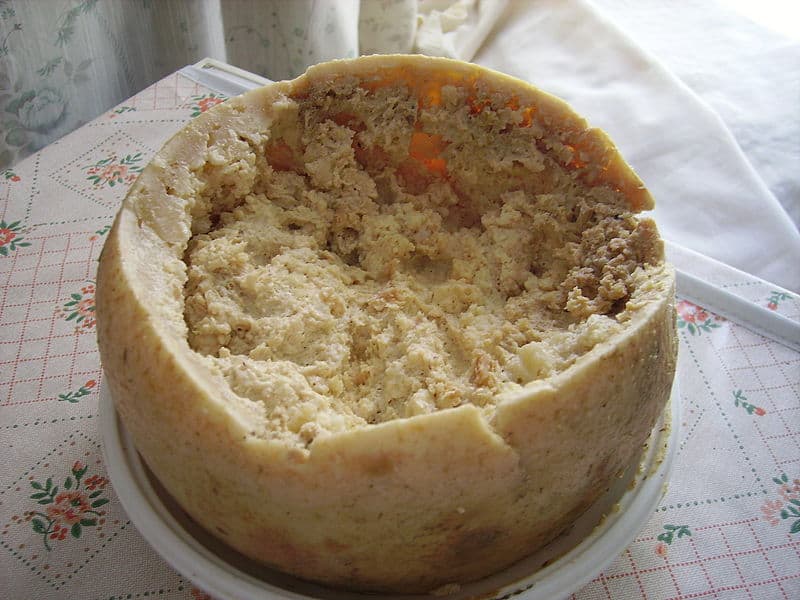LAHORE – Casu marzu is considered by Sardinian aficionados to be unsafe to eat when the maggots in the cheese have died. Because of this, only cheese in which the maggots are still alive is usually eaten, although allowances are made for cheese that has been refrigerated, which can kill the maggots.
Casu Marzu is just one of our Italian food customs that for a number of years was in fact illegal to produce and sell.
But this never really stopped the production as it has always been produced and sold on the black market.
“Casu marzu” literally means “rotten cheese,” but in Sardinia, it’s a glory to behold. What starts off as a regular wheel of pecorino is then visited by cheese flies that lay their eggs inside, giving the Formaggio its signature zing. But, with a nickname like “the world’s most dangerous cheese,” you can be sure that along with the cheese comes some risky business.
Several food safety issues have been raised in relation to Casu marzu, including anecdotal reports of allergic reactions and the danger of consuming cheese that has advanced to a toxic state. In addition, there is some risk of enteric myiasis, or intestinal larval infection. Symptoms include nausea, vomiting, abdominal pain, and bloody diarrhea. Piophila casei larvae are very resistant to human stomach acid and can pass through the stomach alive, taking up residency for some period of time in the intestines and causing stomach lesions and other gastrointestinal problems. The larvae have powerful mouth hooks which can lacerate stomach linings or intestinal walls as the maggots attempt to bore through internal organs.
However, people want what they want and the rotten cheese remains a delicacy.














